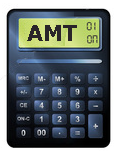
Is There A Way To Avoid IRA Required Minimum Distributions?
Is There A Deduction For Burning Down A House?

With the housing market showing some signs of life, the times of purchasing properties to knock down a home and build a new one, may be returning. Getting rid of the home can actually be a costly process as it requires a demolition team and removal. To reduce the cost and apply for a tax break at the same time, some have let their local fire department handle the demolition and treated it as a charitable gift at the same time. Read More.
Are You Putting Any Nontraded Assets into Your IRA or Roth?

The Alternative Minimum Tax May Affect More People

Are You a Passive Real Estate Investor Prepared for 2013 Taxes?
Tax Planning Strategies to Mitigate Your Risk for Higher Taxes in 2013

The jury is still out on whether or not the bush-era tax cuts will be extended into 2013. However, there are certain new taxes that will definitely impact high income earners next year: the 3.8% net investment income tax and the additional 0.9% medicare tax. What strategies can you follow to escape these new taxes? Read More.

Parents that are planning to send their children to college with the funds in their 529 plan account, may want to spend extra time understanding the rules for qualified expenses. There are certain college costs that are clearly qualified, while others are somewhat up to interpretation. Read More.
Which Retirement Account Should I Withdraw From First?
Selling or Renting A Home Purchased With the Homebuyer Tax Credit
The first-time homebuyer tax credit craze began in 2008 for most purchasers. Four years later, there may still be tax implications for those that claimed the credit. Did you sell or are now renting a home you purchased with the first-time homebuyer tax credit? Read More.
Retirement Planning For the Self-Employed





